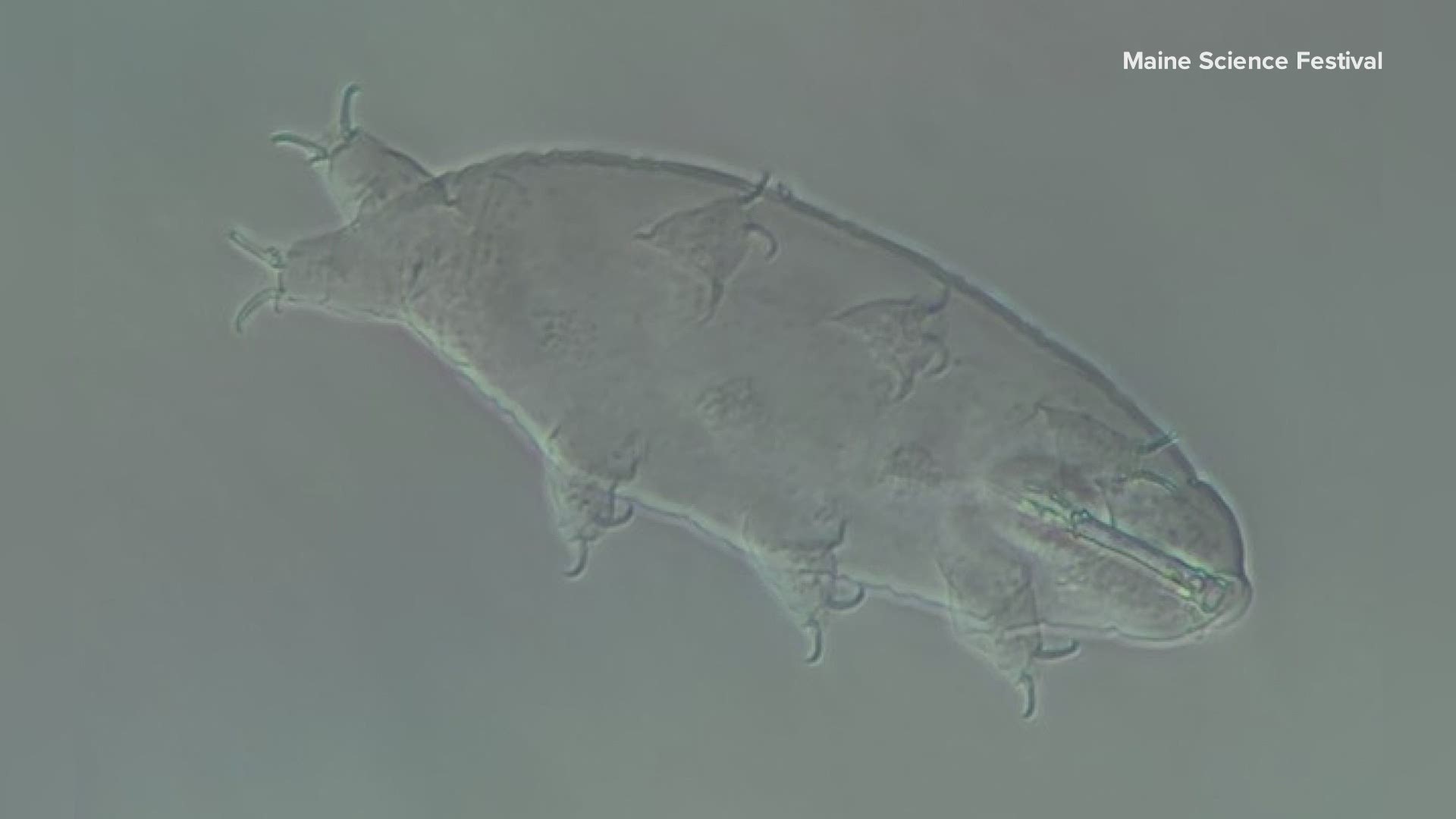BANGOR, Maine — The Maine Science Festival is asking Mainers to take part in naming a new micro-animal species, after a local girl and woman with passions for science discovered it last spring.
John Bapst Memorial High School student Noelle Killarney and invertebrate zoologist Dr. Emma Perry discovered this species of tardigrade during outings to the Bangor City Forest in the midst of the coronavirus pandemic. They were collecting samples and came across this micro-animal, consulting with a colleague in Poland. Since determining it was a new species, Perry and Killarney have been collecting more samples, making slides, describing this tardigrade, and doing some scanning to make the image bigger.
Tardigrades are also known as "water bears" or "moss piglets". They are eight-legged, segmented micro-animals that live in the water and are usually found in moss, lichen, soil, and leaf litter. The biggest ones can measure up to a millimeter in length, but they are usually smaller than half a millimeter.
The first tardigrade in America was actually discovered in New Gloucester -- and the tardigrade Killarney and Perry found lives in freshwater.
Perry says it has been a really neat experience for both of them.
"The excitement of discovery -- you can’t replace that, and it was lovely to see in Noelle," Perry told NEWS CENTER Maine via Zoom. "The other piece of it is because we're not using any fancy equipment, we’re collecting; we're making slides."
The four name options Mainers have to choose from are:
- Dacatylobiotus killarneyorum, named after Noelle
- Dactylobiotus bangoriensis, named after Bangor
- Dactylobiotus covidus, named after COVID-19
- Dactylobiotus pandemus, named after the pandemic
There is also a space where survey takers can suggest a different name.
Perry says Killarney is continuing to sample every two weeks to find out when this new species of tardigrade will come back and how it will recover after this summer's drought. The goal of research like this is to determine how important tardigrades are and what role they play in our ecosystem.
The survey ends at 5 p.m. on Friday, October 30, 2020. Click here to participate.
The Maine Science Festival is the first and only science festival in our state and celebrates "national and world leading science by the Mainers who do it."

